Ford Mustang (1999-2004) Service Manual: Brake Booster - Vacuum (Removal and Installation)
Removal
1. Disconnect the battery ground cable (14301).
2. Remove the air cleaner housing.
3. Remove the brake master cylinder nuts.
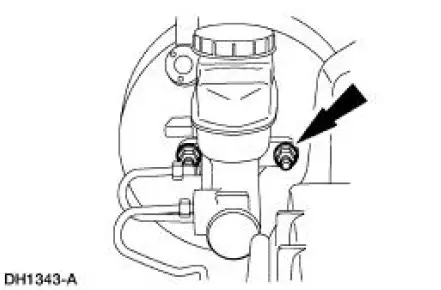
4. Position the brake master cylinder (2140) aside.
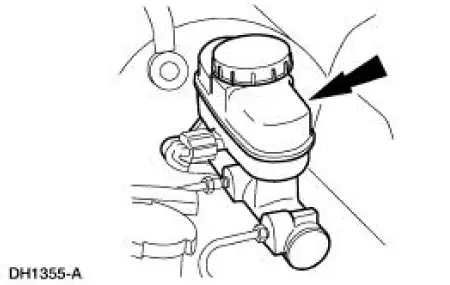
5. With the engine off, depress the brake pedal (2455) several times to discharge the accumulator.
Disconnect the booster vacuum hose.
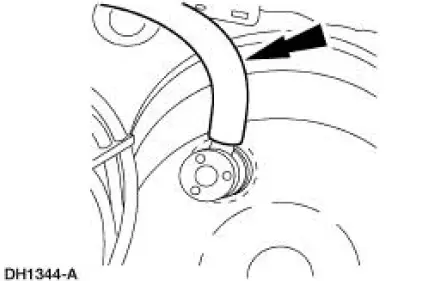
6. Remove the stoplight switch self-locking pin.
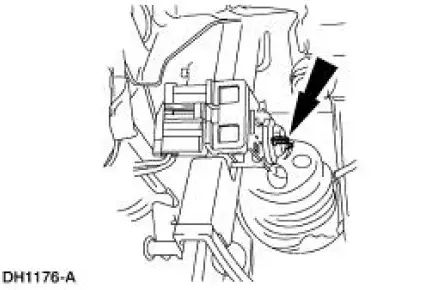
7. Remove the stoplight switch (13480) and the brake booster push rod from the brake pedal pin.
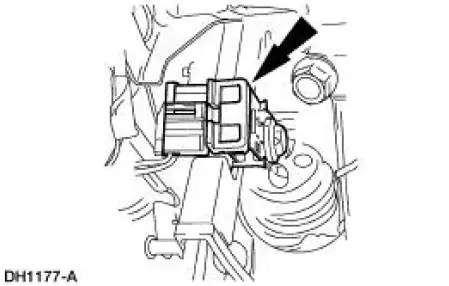
8. Remove the power brake booster nuts.
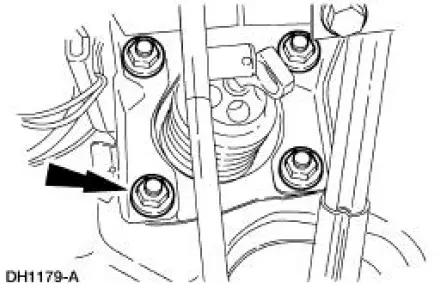
9. Remove the power brake booster (2005).
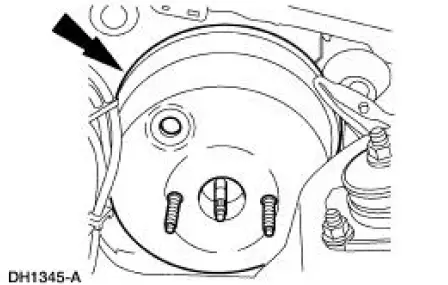
Installation
1. Follow the removal procedure in reverse order.
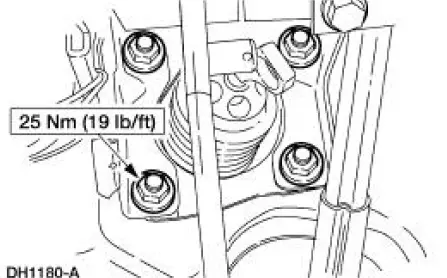
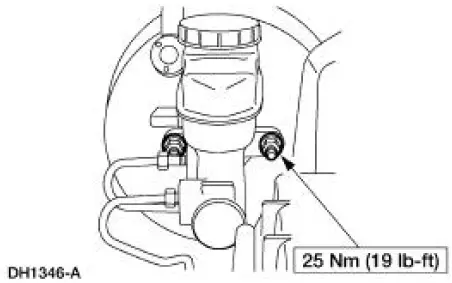
 Hydro-Boost Bleeding
Hydro-Boost Bleeding
1. NOTE: The Hydro-Boost power brake booster (2B560) is generally
self-bleeding, and the
following procedure will normally bleed the air from the power brake booster.
Normal operation
of the vehicle ...
 Brake Booster - Hydro-Boost (Removal and Installation)
Brake Booster - Hydro-Boost (Removal and Installation)
Special Tool(s)
Installer Set, Teflon Seal
211-D027 (D90P-3517-A) or
equivalent
Removal
WARNING: The power brake booster should not be carried by the
accumulator, nor
should it e ...
Other materials:
Valve Cover - LH
Removal and Installation
1. Position the ignition wires (12281) aside.
2. Disconnect the positive crankcase ventilation (PCV) valve (6758).
3. Remove the ignition coil and position aside.
1. Disconnect the electrical connector.
2. Disconnect the ac ...
Inspection and Verification
WARNING: Use of any other than the approved DOT 3 brake fluid will
cause permanent
damage to brake components and will render the brakes inoperative.
WARNING: Brake fluid contains polyglycol ethers and polyglycols. Avoid contact
with
eyes. Wash hands thorou ...
Front Seat Backrest
Disassembly and Assembly
All vehicles
1. Remove the front seat backrest. For additional information, refer to
Front Seat Backrest in this
section.
2. Remove the front seat backrest head restraint (611A08).
3. Remove the screws and the safety belt guid ...
